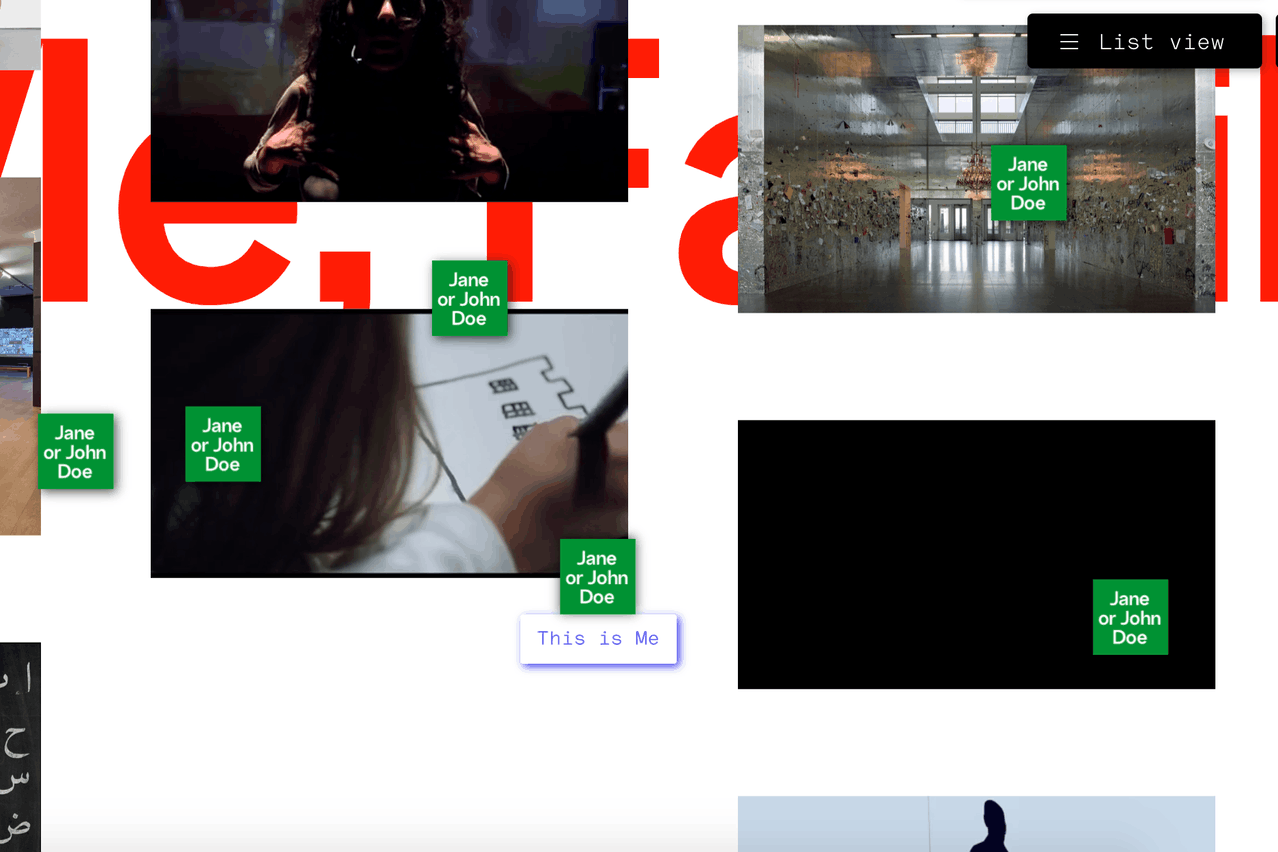“Me, Family. Portrait of a Young Planet” is one of the flagship projects of Mudam’s 2020 lineup. The exhibition--conceived in collaboration with Francesco Bonami, Emanuela Mazzonis di Pralafera and Luigi Alberto Cippiniguest, guest curators who worked in collaboration with the Mudam team--takes as its starting point the “Family of Man” collection by Edward Steichen, on permanent exhibition in Clervaux castle.
“Me, Family. Portrait of a Young Planet” aims to continue the reflections initiated by Steichen in 1955, and questions the connections that visitors maintain with works of art, whether due to different conditions in humankind, questions linked to identity, as well as the impact that technology has on our daily lives. The curation approach to this ambitious exhibition had to be revised following the outbreak of the covid-19 pandemic.
“The pandemic has forced us to rethink the project as a whole,” Suzanne Cotter, director of Mudam, explains. “In order not to lose all the ideas initiated… we have chosen to translate part of this project on a digital platform.”
In addition to the “Portrait of a Young Planet” exhibition presented in the museum’s ground floor rooms and which brings together a selection of works from the collection, an interactive platform has been developed with the help of Base Design Brussels.
“It’s a whole new experience curating an exhibition,” says Francesco Bonami, an internationally-recognised curator. “This platform is not a substitute exhibition, because nothing replaces the actual contact with the works, but it can represent a new way of presenting certain works from time to time. Edward Steichen had thought about a new way of presenting photography with ‘Family of Man’… we have tried to continue this reflection,” he explains.
A new way to discover art
The platform presents 24 works in a way that is suitable for viewing on screen. Works by Doug Aitken, Clément Cogitore, Harun Farocki, Mario Pfeifer, Wong Ping and Cindy Sherman are presented there.
Each visitor accesses the platform in the form of a customisable avatar and browses the wall where the works are presented in thumbnail or list formats. In total, 24 works have been selected and create a multifaceted portrait of humanity at the start of the 21st century, tackling subjects such as digital innovation, pleasure, entertainment, but also darker subjects like alienation, social injustices or identity crises. Works which Cotter says “resonate with our current affairs”.
Works can be viewed in full-screen mode for optimal immersion. “Visitors can also leave a comment next to the artwork, like graffiti,” says Mudam’s Sarah Beaumont, project co-curator.
“This is a pilot project which does not have an equivalent in other museums,” explains Thierry Brunfaut of Base Design, who carried out a vast study before embarking on this technically intensive project. Its one Bonami sees “could pave the way for a new reflection which, without ever replacing the real and physical confrontation with the works, could become an additional approach to discover artistic creation.”
Events and a publication
The events linked to the exhibition will be on both the digital platform itself as well as on Mudam’s Instagram account. These will include meetings with artists, researchers and curators on themes related to the exhibition or current affairs, making the space conducive to debate.
A bilingual English/French publication will also bring together unpublished essays by Omar Kholeif, Natalia Kucirkova, Emanuela Mazzonis, Anke Reitz and Ali Smith, plus by Roland Barthes, Carl Sandburg and Edward Steichen.
The project will go offline on 21 March 2021. “The choice to put an end date for this project, even if it is a digital project and could in itself remain online without limits, also contributes to ecological thinking. We preferred to give an end date to prevent ‘Me, Family’ from eventually becoming digital waste. We are also thinking in parallel about how to archive this project,” Cotter says.
This article was originally published in French on Paperjam.lu and has been translated and edited for Delano.
